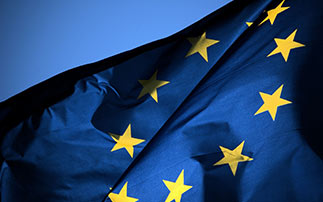The role of European experts in calls for proposals
In the complex environment of European funding for research, innovation and development, calls for proposals represent a major route to obtaining substantial funding. At the heart of this process are the European experts who play a decisive role in selecting and evaluating the projects submitted. Their specialist expertise and objectivity are essential to ensure that only the most promising and relevant projects are funded. This article sets out to analyse the different roles and responsibilities of these professionals, and their working methods.
The key role of European experts in the evaluation and selection of projects
European experts, who sometimes take on the role of evaluators, are qualified professionals with experience in relevant fields linked to specific calls for proposals. Their main role is to examine project proposals and evaluate them according to criteria such as innovation, scientific quality, feasibility, potential impact, relevance to the objectives of the call for projects, etc. Their expertise, whether in health, the environment or technology, enables them to provide accurate and informed assessments of the projects submitted, thereby helping to guarantee the quality and relevance of the projects funded.
Experts may work independently or be employed by companies, universities, research centres, NGOs or national or international public authorities. In addition to their role in selecting and evaluating projects, their expertise is also made available to the various European Union bodies, in order to contribute to the decision-making process linked to calls for projects.
Impartiality and transparency: the foundations of the evaluation process of European projects
European experts are required to apply strict impartiality and objectivity in the process of evaluating European projects. They must therefore provide objective assessments, with no bias in favour of or against certain projects or participants. This impartiality guarantees the integrity and transparency of the project selection process, thus reinforcing confidence in the allocation of European funding.
This is why European experts must ensure that :
- Applications are examined fairly and objectively, without favouritism or discrimination
- The projects selected genuinely correspond to the needs and priorities of the European Union
- The funds allocated are used efficiently and in accordance with the rules in force
- The initiatives financed make a tangible contribution to implementing European policies and improving the quality of citizens’ lives.
For certain calls for tender, experts must sign a declaration in which they undertake to comply with the experts’ code of conduct. This is a set of principles and guidelines established by the European Commission to govern the ethical and professional conduct of experts involved in the evaluation of project proposals submitted under European Union (EU) calls for proposals.
Evaluation and selection of projects by European experts
For each call for proposals, the European experts assigned are responsible for examining the applications and assessing their strengths and weaknesses on the basis of the following non-exclusive criteria:
- The relevance of the project to the objectives of the call for proposals
- The scientific and technical soundness of the proposal (methods proposed, data used, feasibility of the project)
- The potential impact of the project on research, innovation, society or the environment
- The quality and strength of the consortium behind the project (complementarity of skills, coherence of contributions, ability to achieve the objectives, etc.).
- The provisional budget and timescales for completion
This evaluation can be carried out individually or collectively, depending on the organisation set up for the call in question. Once the evaluation has been completed, the experts draw up an evaluation report, which they then send to the relevant EU bodies.
Monitoring and checking funded projects
The tasks of the European experts do not end with the selection of projects: they are also responsible for monitoring and controlling the projects funded to ensure that they respect their commitments and achieve the objectives set. To do this, they carry out site visits, take part in meetings with beneficiaries, analyse activity reports and advise on the management and implementation of planned actions.
As projects progress, the experts may identify problems or potential risks that could compromise the success of the project. Their role is then to advise the players involved and propose appropriate solutions to remedy these difficulties.
In short, European experts play a central role in the operation of calls for proposals within the EU. Their expertise, impartiality and commitment are essential to ensure the success of the initiatives supported and to strengthen public confidence in the actions undertaken by the European institutions.


